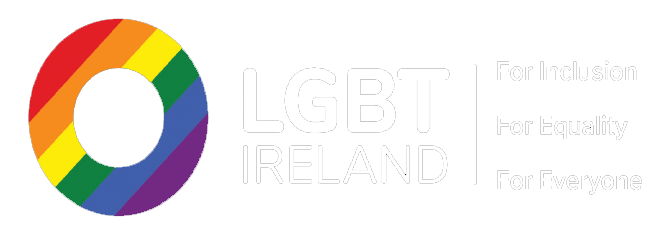LGBT Ireland response to Primetime episode on Transgender Healthcare, aired 14th December 2023.
Yesterday’s episode of Primetime on RTE1, covered the topic of Transgender Healthcare and the model of trans healthcare provided in Ireland. The programme last night did not, in our view, provide a balanced perspective on what is a very sensitive issue for trans people and their family members.
Trans people in Ireland are a tiny minority of the population whose voices have rarely been heard in national discourse. The recent increase in trans visibility has brought conversations about gender to the fore in many spaces and that is to be welcomed. While open conversations are encouraged, these must be presented in a fair and balanced manner.
Primetime did not reach out to LGBT Ireland to participate in the show and did not include any parent or young person’s perspective whose lives have been positively changed, and in many instances saved, by receiving gender-affirming healthcare. As the provider of the National LGBT Freephone Helpline and the Transgender Family Support Line, we have an important perspective to share on the experiences of hundreds of trans and non-binary people, and their family members who contact our services every year.
Trans, LGBTQI+ organisations and health professionals share a common goal in relation to people who are struggling with their gender identity, that is to support them to be healthy and happy in their lives. To achieve the best outcomes for individuals seeking support, it is imperative that health professionals, Trans and LGBTQI+ organisations, family members, and individuals themselves, are part of developing accessible and effective wrap-around health services that are based on internationally recognised best practices.
What should have been the focus of last nights episode is that Ireland is failing the trans community in providing a model of care that is inaccessible and does not reflect international best practice. What is needed is delivery of timely and gender-affirmative care that is accessible locally, free at the point of use, in line with human rights principles and international best practice in medicine and crucially based on an informed consent model of care.
Collaboration is key to achieving the best outcomes for young people and we appeal to all health professionals working in this area, and the media who are interested in covering this issue, to engage with us and other LGBTQI+ service providers to avoid a polarising debate on this issue which only further stigmatises trans and non-binary people.
If you or someone you care about is in need of support, please call our National LGBT Helpline on freephone 1800 929 539 Available 7 days a week, from 6.30pm to 10pm Mon – Thurs, from 4pm to 10pm Fridays, and from 4pm to 6pm on Sat & Sun or call the Transgender Family Support line on 01-9073707 open Tuesdays 10am-12pm and Sundays 6pm-9pm.
ENDS
